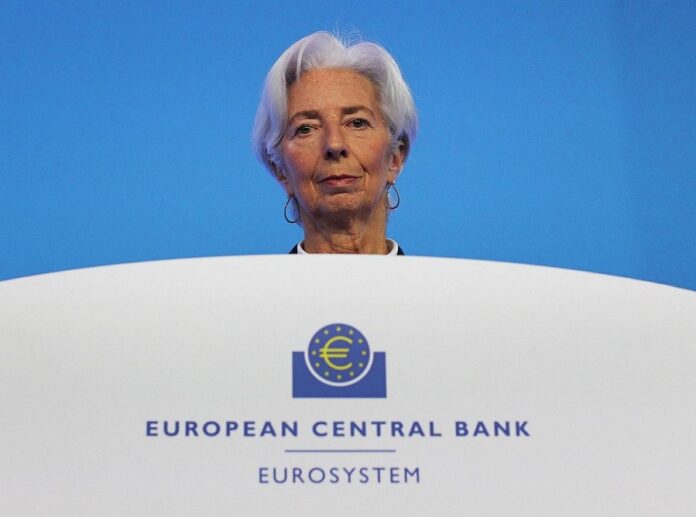European Central Bank President Christine Lagarde declined to give a timeline for interest-rate cuts but emphasized that wage data will be vital in deciding when to begin monetary easing, according to Bloomberg.
The comments suggest a first reduction in borrowing costs will only be feasible toward mid-2024 — later than the April meeting that markets are fully pricing.
“We are not there yet” on inflation, Lagarde told CNN in an interview broadcast Tuesday. “We need all sorts of data, but one of which is critically important — it’s the data concerning wages.”
Those figures aren’t due until after officials gather on April 10-11, and with no meeting in May, that puts the focus on June for an initial move to loosen policy. Chief Economist Philip Lane has also stressed the importance of salary developments in the 20-nation euro zone.
Lagarde’s colleagues have been sending mixed signals on when the first rate cut is likely to come, with some leaving the door open to a move before June. French central bank chief Francois Villeroy de Galhau said at the weekend that “regarding the exact date, not one is excluded, and everything will be open at our next meetings.”
Everything will hinge on when policymakers become convinced that inflation is really headed back to 2%, after an uptick last month. Data due Thursday will reveal whether consumer-price growth resumed its downward trajectory in January. Analysts see a slowdown to 2.7% from 2.9%.
National figures from Spain earlier Tuesday showed a surprise acceleration to 3.5%. Readings for France and Germany are scheduled for Wednesday.
“We are on a disinflationary trend — no question about it,” Lagarde said. “But we need to be further into that process.”
She highlighted that no matter the hawkish or dovish preferences of the Governing Council’s members, “I think we all agree that the next move” — irrespective of when it comes — will be a cut.


